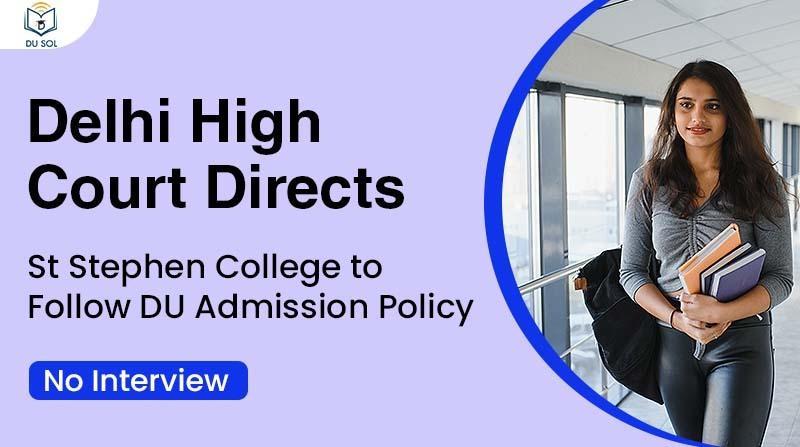A special bench of the Delhi High Court said that St Stephen College has the authority to conduct interviews for new students taking admission to various courses apart from CUET entrance exams for Christian students. The bench headed by CJ Satish Chandra Sharma said that the college can’t force non-minority candidates to furnish all the formalities of an interview.
On Monday, the Delhi High Court in its judgment directed the St Stephen College of the Delhi University to follow all the admission policies for the registration of new candidates for various courses. The honourable high court also said that the rights accorded under the Indian constitution for minority institutions can’t be extended for non-minority candidates for admission. The court also directed the top college of the university to provide 100 weightage to CUET (Central University Entrance Test) 2022 entrance tests for admission to non-minority students.
The Satish Chandra-headed bench of the Delhi High Court has said in its statement that the college has complete authority to conduct interviews of the candidates apart from the CUET score achieved by the students of Christian communities, but they can’t force the non-minority students to face an interview.
The bench also said to withdraw its official prospectus in which it is mentioned that the college will provide 15% weightage to the candidates who appeared for the interview along with the CUET score for admission to unreserved seats in the courses. The court ruled that the university can’t insist on a single merit list for the admission procedure for Christian community students regardless of denomination criteria etc.
This judgment of the Delhi High Court came after the petition was filed by a law student challenging the legality of the admission procedure for admission on unreserved seats (non-minority) for undergraduate programs. The court said that we have observed that the CUET is made to uniformize and standardization of the complete evaluation procedure of the entrance score by offering a competitive level playground to the candidates for offering definite merit in the context of varying stages and standards or several boards of education and therefore conducting an interview over CUET has the capability of launching subjectivity and bias legal procedure of the admission procedure. Without the same, the legality of CUET will be eradicated.
The court then said that the college of the petitioner retains the authority to conduct interviews in addition to CUET score for the candidates belonging to the minority community and can’t force non-reserved candidates to take admission without an interview. After that, the petitioner’s college was directed to follow the admission guidelines based on their policies of DU admissions for the 2022-2023 session.
The court also said that the college must withdraw its prospectus for admission and declare its amended admission guidelines through public notice.
The college was represented by senior advocate Kapil Sibbal had challenged Delhi University’s letter asking to withdraw the admission guidelines and prospectus that mentioned providing 85% weight to CUET score and 15% to college interview for the admission to admission to UG programs to unreserved seats.
The petitioner was a law student named “Konika Poddar,” who was represented by senior advocate Arun Bhardwaj and lawyer Akash Vajpai has sought a file to direct the college in order to conduct the admission to unreserved seats of UG programs only on the CUET score.
However, St Stephen College has argued that it is a minority institution and therefore has the right to admit students based on their merit in entrance tests and the interview based on its own admission criteria. It also said that the honourable supreme court has also said that interviews can be considered as one of the criteria for admission procedure to UG programs for both the general and reserved (minority) candidates.
The court in its order said with reference to Article 30 (1) of the constitution that the college can grant other rights to the minorities but it can’t do maladministration and disallow other candidates to take admission if the seats are vacant.


